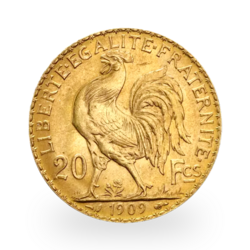India's government increased the limit on cash withdrawals from bank accounts on Sunday to calm public anger as millions of people clamored for new rupee bills after a shock abolishment of large denomination notes.
Large crowds were again gathered at banks across the country trying to change 500 and 1,000 rupee bills, demonetized by the government on Tuesday, in an effort to crack down on corruption.
Indian banks received 3 trillion rupees ($44.4 billion) of 500- and 1,000-rupee notes over the last four days, the Finance Ministry said in a statement, in a surge in liquidity in the banking system. Short term interest rates are expected to fall as a result.
ATMs are out of service, Banks are out of cash,Public is out of control,
— Anirban Mukerji (@anirmukerji) November 12, 2016
& Modi is out of India #Tughlaq pic.twitter.com/m15YykJtK4
The government relaxed cash withdrawal limits including removing a per-day cap of 10,000 rupees, increasing the weekly limit to 24,000 rupees from 20,000 and allowed exchange of bills over the counter at banks to reach 4,500 rupees instead of 4,000.
The move to demonetize the large bills is designed to bring billions of dollars' worth of cash in unaccounted wealth into the mainstream economy, as well as dent the finances of Islamist militants who target India and are suspected of using fake 500 rupee notes to fund operations.
The banned rupee notes made up more than 80 percent of the currency in circulation, leaving millions without cash and threatening to bring much of the cash-driven economy to a halt.
The Reserve Bank of India said small denomination currency notes were available with both the central bank and with other lenders.
People "need not be anxious" and should not hoard bank notes because "cash is available when they need it", the RBI said in a statement. It also asked banks to provide details of cash withdrawn and exchanged daily, in contrast to fortnightly, to provide a better idea on circulation.
The measures came as people complained of lack of access to their accounts despite hours of waiting at banks as well as over the non-functioning of tens of thousands of ATMs not yet reconfigured for the new series of smaller-sized 2000 rupee bills.
The Times of India reported that the central bank's office in the western city of Ahmedabad was handing out coins in return for the old notes because it didn't have enough valid tender.
It showed a picture of a man emerging with plastic packets of coins of 10 rupees, underlining the banking system's struggle to make the transition to the new series of notes.
Prime Minister Narendra Modi, facing criticism from opposition groups for putting ordinary people into difficulties, promised further steps to rid the country of graft.
"I know the forces up against me, they may not let me live, they may ruin me because their loot of 70 years is in trouble, but I am prepared," he said in a speech in western seaside resort of Goa. The decision to demonetize the high value notes was planned in secrecy over the past 10 months, he said.
Modi came to power in 2014 with a mandate to boost economic growth and fight the corruption that taints large parts of India's political and business life.
So far, despite the rising difficulties people are facing, his crackdown on corruption is supported particularly among the middle-class which want action against the political and business elite for wrongdoing.
Anil Dalavi, a 32-year-old Mumbai resident with 20 rupees in his pocket who was waiting outside a bank, said he supported Modi's efforts to go after people with ill-gotten wealth.
"It has been tough for middle class people like us because we were caught completely unaware. But since this is a good move to flush out black money, I am willing to bear the pain."
The "black economy", the term widely used to describe transactions that take place outside formal channels, could account for as much as 20 percent of gross domestic product, according to investment firm Ambit.
Source : Reuters
Reproduction, in whole or in part, is authorized as long as it includes all the text hyperlinks and a link back to the original source.
The information contained in this article is for information purposes only and does not constitute investment advice or a recommendation to buy or sell.

















